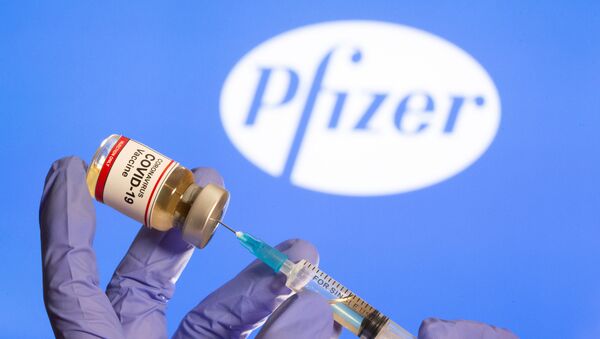Anne Moore, a Senior Lecturer in Biochemistry and Cell Biology at University College Cork, looks at what challenges still remain for Coronavirus vaccines.
Sputnik: Following this week's promising news surrounding the Pfizer and Sputnik V Covid vaccines… what do scientists and researchers still need to find out, and discover about these new Covid vaccines, before mass inoculations are carried out?
Anne Moore: The press release this week is very positive that a vaccine can protect humans against SARS-CoV-2 infections. It's very promising, and we need to understand if it will translate to larger populations that it's a generalizable effect, and at the moment that's unclear because that data hasn't been provided yet. The contingency for allowing this vaccine to be used overall in the population is dependent on showing a safety profile, and the efficacy profile on all that data has been accrued or it's available and it's being analysed at the moment, and then submitted to the regulatory bodies. So, the FDA in the US; and Britain the MHRA; and in Europe the EMA. The regulators are working very closely with companies in real-time to be able to analyse that data very quickly and have a fast turnaround time. In this case, because we're in a pandemic, the vaccine manufacturers are looking to get what's called an emergency use authorization, which is a specific licence to be used during an emergency, which is what we're in now; and then from that the further data, I mean these trials will go on for at least another year, to follow up in all of the population of the trial; to continuously gather data on the safety and how long the immune response lasts and how long the vaccine will protect it against infection, which is what we call efficacy.
Sputnik: Can we expect these new vaccines to be quickly approved and authorised by regulators such as the FDA and Britain's MHRA? Are there any challenges on that front?
Anne Moore: I don't foresee many challenges because regulators are fully resourced and available to make decisions quickly. What normally happens is the vaccine manufacturer would submit their dossier and then the regulator would have a period of time, anything up to three months, to review that data and come back with questions and queries for the vaccine manufacturer. During the pandemic, they have prioritised reviewing all of these dossiers that vaccine manufacturers are submitting, so these are at the top of the priority list for the regulators. So, the regulators are putting a lot of resources into the process, so that they're ready and available, and can discuss it right there and right then. It looks like there will be a decision on the emergency use authorization by possibly the end of November, which means that there will be a vaccine then. As soon as they're authorised to use it, it will be ready to be used in the population overall.
Sputnik: Going forwards, what other big challenges still remain on the horizon for these and other COVID-19 vaccines?
Anne Moore: It's such a new vaccine, it's such a new disease, there's still a lot of outstanding questions. We don't know how long it [the vaccine] will last. It's really important to understand if that's going to be three months, six months, a few years; and only time will tell us that. So, at the moment we know that it will protect in the short term. Another thing that we don't know is what the threshold of the immune response that's needed to provide protection. So, if you only need a tiny amount of for example neutralising antibodies, then it's likely that we will have a longer duration because if people have high levels of antibodies that will wane over time, but they will still be protected. So if it's only a small amount of neutralising antibodies are there, we're optimistic that vaccines will provide protection for longer, but if the threshold for protection is very high; then we need to maintain those antibody levels to a very high level, which means the vaccine/the protection may go down faster than we would like. The second big question is what is the best part of the immune system to protect against infection? So, is it antibodies? Is it T cells? Is it a combination of both? We think one key area are neutralising antibodies but we don't have standardised assays at this stage to be able to compare across different trials as to what that level is, and what's the best assay for measuring that. It's about being able to measure what is protective and what is the threshold of that protection, and what is the threshold of that immune response to provide that protection. They are key questions for vaccine efficacy going forwards. There are questions as well as to whether these vaccines will protect healthy adults. Will they protect the elderly? Will they protect people with diseases? We don't know that at this stage. Most, if not all of these phase three clinical trials, are looking across people of different ethnicities and of different age. So, we should have an answer as to whether it will protect the elderly in the coming month. Hopefully, they do, but it is a big question that needs to be answered because protecting the elderly with vaccines is a more difficult challenge compared to protecting healthy adults who are in the prime of their life.



